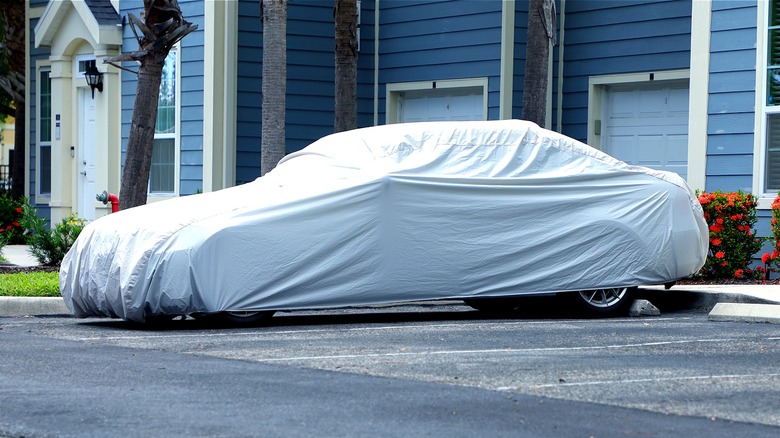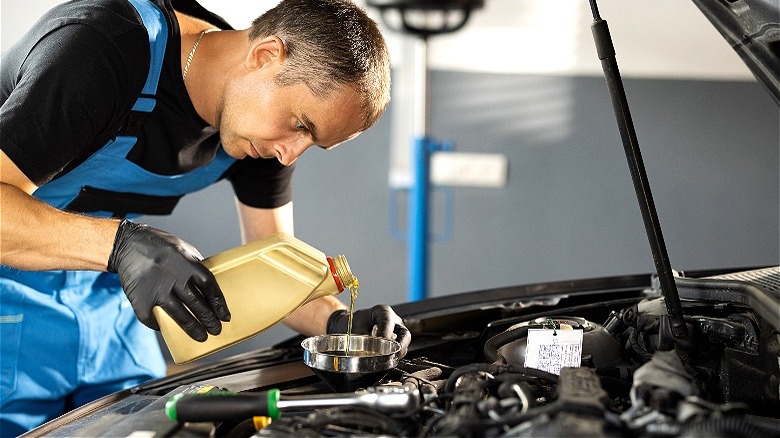How Keeping This Old Item Around Can Boost Your Net Worth
For many Americans, owning a car is a necessary evil. Unless you live in a city with good public transportation or you have yourself and everything you buy transported by companies like Uber and Doordash, having a personal vehicle can be extremely handy. However, it can be simultaneously a drain on your finances as well — money you could otherwise be saving up in an emergency fund, investing in the stock market, or even spending on the occasional splurge.
Of course, buying brand new cars is the most expensive route to vehicular bliss. In June 2024, the average price of a new car was a stunning $48,644, according to Kelley Blue Book. Adding insult to injury, that same new car is projected to lose ~20% of its value in the first year of ownership, then about 10% per year after that until the value starts to stabilize around age 5.
If you're thinking that buying a used car is a better solution, you'd be correct. However, used cars aren't exactly cheap either. The average price for a used car in May 2024 was $25,670, once again per Kelley Blue Book. And if you need a loan to buy your new-to-you used car, note that interest rates for preowned vehicles are typically higher than loans for new car purchases. (Here are other things people always get wrong about buying a used car.)
Therefore, the most thrifty course of action, which can also prove a boost to your net worth, is to keep your existing car as long as practically possible. But how do you determine when it's time to retire your old whip? That's a little more complicated.
Americans are keeping their old cars for longer
If you're considering holding on to your old car for longer to save money, know that you're in good company. According to a May 2024 study from S&P Global Mobility, the number of Americans who are keeping their vehicles longer has been headed upward for more than 10 years. For example, in 2012, the average age of a passenger car on the road was 11.2 years and 11 years exactly for light trucks. In 2024, those figures are 14 years and 11.9 years, respectively.
While new car manufacturers and dealerships might not be thrilled with those statistics, smaller independent repair shops tend to benefit. That's because as vehicles get older, drivers cease getting service and repairs at the dealership. It's often less expensive to utilize the services of local repair shops, dubbed "aftermarket service." Per Todd Campau from S&P Global Mobility, "With average age growth, more vehicles are entering the prime range for aftermarket service, typically from 6 to 14 years of age."
Some experts say that about 10 years from new is the sweet spot for hanging on to a vehicle. For example, if buying a 3-year-old used car, realistically expect to own it for seven years. That's enough time to have extracted near-maximum value from the vehicle, but before expensive repairs start to surface. Of course, 10 years is just a rough guideline and actual longevity will vary depending on make, model, and your driving habits. It's assumed most drivers will travel about 13,000 miles per year, but if you drive less than that, your vehicle may last longer and vice versa.
Invest the money or pay down your debt instead
When deciding whether or not it's time to replace your current car, consider whether its technology, safety, and fuel economy are current enough for your needs. And we do mean needs, not necessarily wants. Modern vehicles are designed better and constructed with improved manufacturing processes that lead to a longer life span than their predecessors from decades earlier. That said, there comes a time when every car will require pricey replacement parts, like a new engine or transmission.
It's always a difficult decision whether to keep pouring money into an older car, which may not be worth significantly more than the cost of the repairs themselves. On the other hand, even the most pricey repairs may only equal a few months worth of payments on a new car loan. Keeping up with maintenance requirements like oil changes can also help to extend the reliable life of your vehicle. (On that note, here's more on when car repairs become not worth it.)
In summary, if you can resist the urge to keep up with your next-door neighbor's flashy, new car, your checking account or brokerage account will thank you. By keeping your old car around, you'll do far better investing for retirement, opening up a high-yield savings account, or paying down debt than saddling yourself with an expensive monthly car payment or an absurdly long 96-month auto loan.


